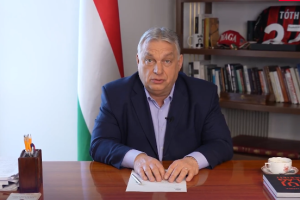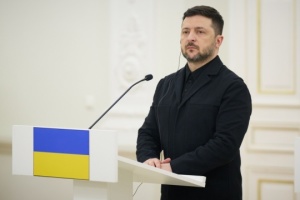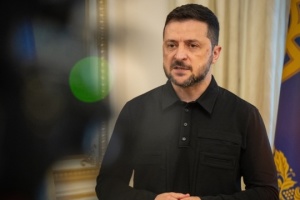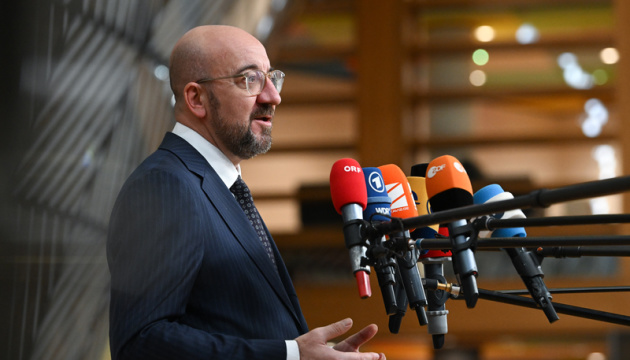
European solutions and Ukrainian dawn
The European summit held on December 14-15 was historic not only for Ukraine and Moldova, with whom the EU leaders, not without difficulty, managed to decide to start negotiations on EU accession. This summit will also be of historical significance for the European Union itself, since for the first time European leaders have so clearly articulated the inevitability of changes that await the EU, from its enlargement to its place on the geopolitical map of the world.
That is, for Ukraine, as the President of the European Council, Charles Michel, put it, this summit was indeed a reason to hope for a European future. Even if not tomorrow, even if after lengthy negotiations around each of the 35 "clusters" of the future agreement, Ukraine will become a member of the European Union. Right now, with the approval of European leaders, Ukraine has taken a very concrete step forward on this path.
But for the European Union, this last summit in 2023 was very special, bringing many unexpected innovations that European leaders themselves hardly expected before the summit began.
PACKAGE SOLUTIONS AS A WAY TO COMPROMISE
From the very beginning, the agenda of the summit, which included consideration of amendments to the EU's multi-annual budget, was quite controversial for most of the leaders of the member states. And the main "stumbling block" was not the European Commission's proposal to create a Ukraine Fund under the MFF (Multiannual Financial Framework) for 2024-2027: the member states, at least the vast majority of them, had no doubt about the need to allocate EUR 50 billion over the next four years to support Ukraine.
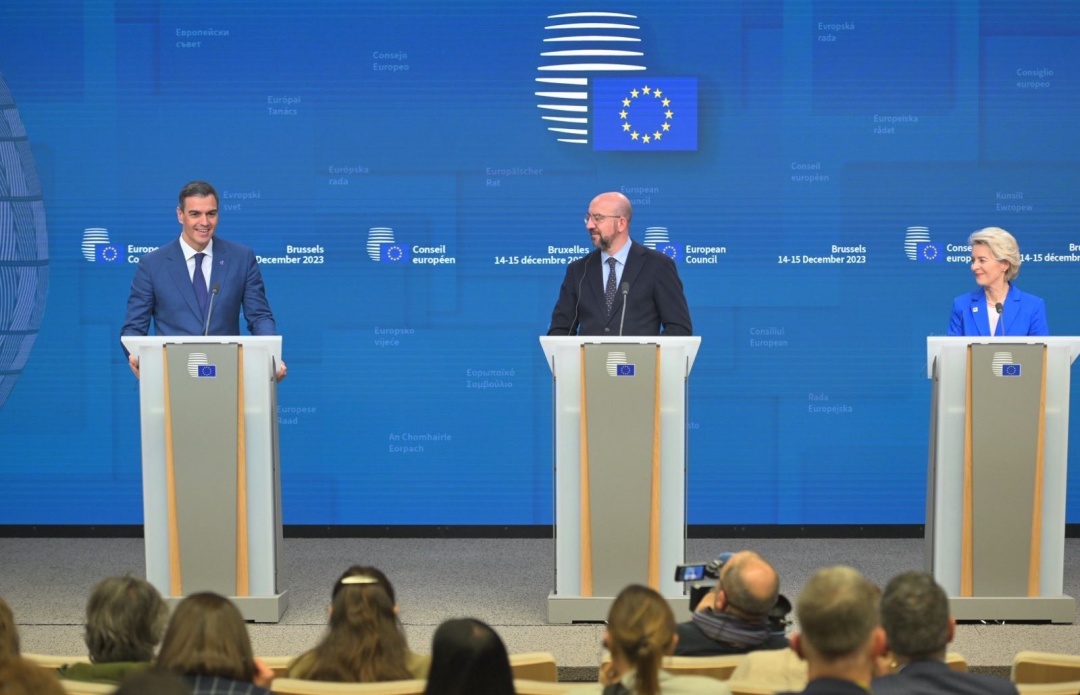
The financing of some other programs, in particular those related to migration regulation, additional investments in the EU's technological development, and its competitiveness in the global market, especially in the context of the "green" transformation, proved to be much more difficult. Finally, certain fiscal stabilization measures, including curbing the growth of interest rates and their impact on inflation, required additional funding.
As European Commission President Ursula von der Leyen noted during a thematic hearing in the European Parliament on the eve of the summit, the current budget, which was developed in a relatively calm 2020, did not foresee that the EU would face the most severe crises in its history. The pandemic has dealt a heavy blow to the economies and healthcare systems of member states, resulting in significant national spending to support the liquidity of businesses and industries that have been pushed to the brink of survival by the coronavirus outbreak.
Just as the European and global economies were beginning to recover from the post-pandemic economic crisis, the Russian invasion of Ukraine began. This full-scale aggressive war that Russia unleashed against Ukraine in February 2022 came as a shock to Europe and the world, as, in addition to obvious threats to European security, it brought with it a "perfect storm" in the form of a spike in energy prices, a financial crisis, and an aggravation of global food security, all of which were provoked by the Kremlin's deliberate actions to destabilize the collective West.
As the President of the European Commission noted, the EU budget was forced to respond to these events, but now its resource base has reached its limit. This means that even redistributing money, for example, through certain regional development programs or cutting educational programs, can no longer bring adequate results. This means that additional contributions, "fresh money," are needed from member states to revitalize economic activity across the EU and help it address pressing challenges, including security and migration.
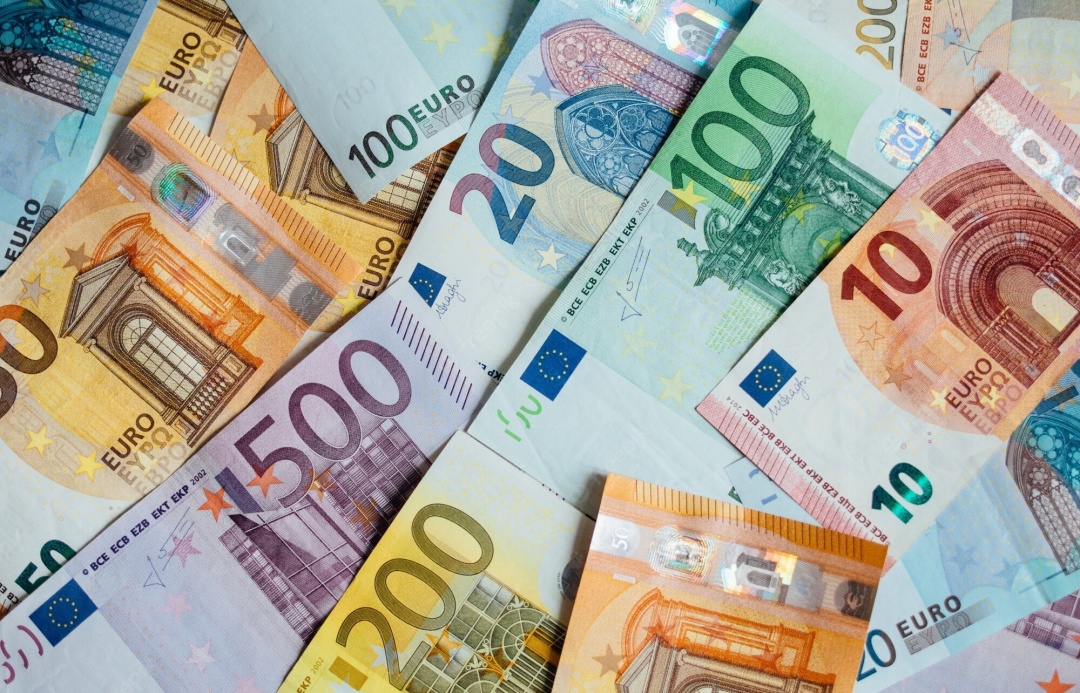
It was the need to allocate additional funding that caused the greatest controversy among the leaders of the member states, who discussed changes to the multi-annual budget until late at night. According to reports, they were able to agree on only about one third of the budget proposal presented by the European Commission.
But at the same time, as diplomatic sources reported the day before, the vast majority of EU countries had no doubts or hesitations about allocating EUR 50 billion to Ukraine. And it was this point that was the reason why, despite the Hungarian prime minister's insistence, the issue of aid for Ukraine was not taken out of the overall budget package. Strangely enough, it was the Ukrainian "issue" that increased the chances of European leaders agreeing to the overall budget package presented by the European Commission.
In other words, in this case, the "package approach" played a constructive role, allowing the President of the European Council to express confidence that leaders will be able to agree on budget amendments during an extraordinary summit early next year, including 50 billion euros for the Ukraine Fund. As this upcoming summit will start with an already established and strong position for such long-term support for Ukraine, with or without Hungary.
EU ENLARGEMENT: BREAKING STEREOTYPES
A similar "package approach" eventually worked in the issue of EU enlargement. As is well known, Hungarian Prime Minister Viktor Orban had long before the summit strongly opposed the start of negotiations with Ukraine. He said that Ukraine was not ready to join the EU. And not because it was "oppressing" the Hungarian national minority in Transcarpathia (as this thesis had already been shattered by the Verkhovna Rada by adopting amendments to the legislation on minority protection). The Hungarian leader dusted off his favorite thesis, calling Ukraine the most corrupt country in the world. This person must know exactly what corruption is if he allows himself to make such statements. Only the lazy did not speculate about the motives behind Orban's strange behavior.
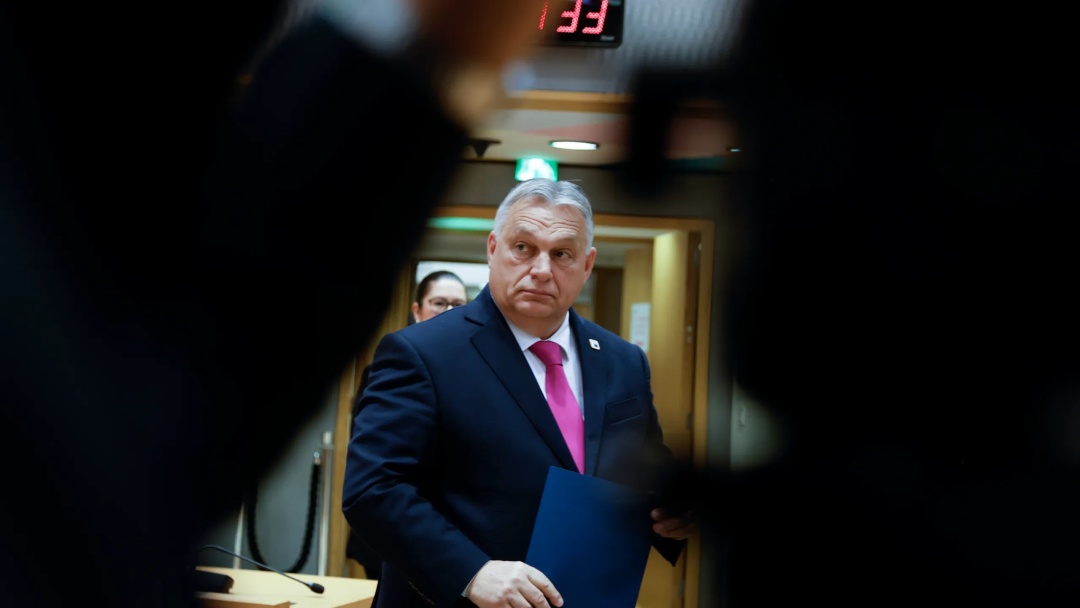
As the chief Lithuanian diplomat Gabrielius Landsbergis said during a meeting of the EU Foreign Affairs Council on the eve of the summit, there must be a systemic reason for this behavior: there are those who want to strengthen the European Union and those who want to weaken and break it up. This is probably the first time such a harsh assessment has been made of a current European leader.
Immediately before the summit, Orban repeated his thesis about Ukraine's "unreadiness," this time referring to... the European Commission's conclusions: that Ukraine had failed to fulfill three of the seven conditions proposed for membership. However, this thesis was also defeated by the arguments of the European Commission itself, which expressed admiration for Ukraine's progress and noted that Ukraine had fulfilled almost all the conditions, including Hungary's demand for changes in the status of minority languages.
Interestingly, before the summit, Orban categorically denied the relationship between the "unfreezing" of EUR 10 billion in regional development programs for Hungary and a possible compromise on the EUR 50 billion for Ukraine, saying something like "I don't trade principles." And a few hours later, after he de facto used his veto power during the adoption of amendments to the EU budget, he explicitly named the complete "unfreezing" of funds from the EU budget for Hungary, which were blocked due to the failure of the Hungarian authorities to comply with the basic EU principles of the rule of law, as a precondition for funding for Ukraine.
But this is not about Hungary, it is about the way out that the EU found in this situation, which threatened the inability of the European Council to reach a consensus on the decision to start negotiations with Ukraine. The "package approach" again played a positive role in finding such a solution, as the EU, represented by European Council President Charles Michel, publicly abandoned the idea of "separating" Ukraine from other candidate countries.
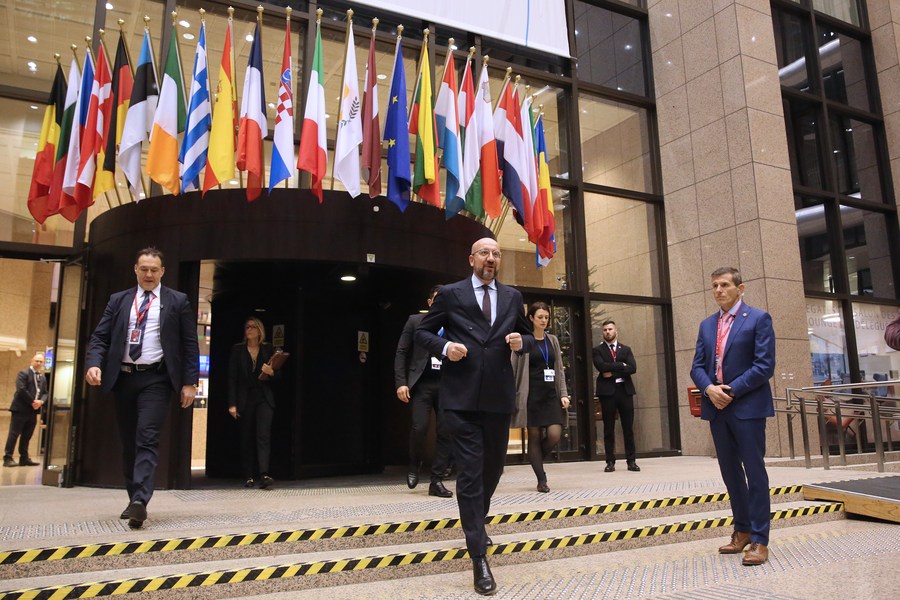
This has its own undeniable logic, since it was Ukraine that became the locomotive that moved forward the entire process of EU enlargement, which had been stalled for decades with no signs of revival.
It is logical that blocking the start of negotiations with Ukraine would deal a devastating blow to the authority of the EU itself, not only in terms of fulfilling its obligations to Ukraine, but also in its relations with other candidate countries, in particular, the six partners from the Western Balkans, whose place the EU clearly considers among its members.
Thus, any suggestion that the EU is "tying" Ukraine to the other candidate countries, the EU wants to put it in a "long circle" and slow down its path to membership is wrong. The opposite is true: the pace with which Ukraine has burst into the EU enlargement process has helped the EU realize the geopolitical significance of the enlargement process itself. And this understanding at the level of EU leaders has opened up entirely new perspectives for the rest of the candidate countries, including the Balkan states, Moldova, Georgia, and even Turkey, whose negotiations with Ukraine have also gained new momentum in the current geopolitical context.
It is no coincidence that Georgian President Salome Zourabichvili explicitly stated that her country received the status of an EU candidate country thanks to Ukraine. Other countries share this understanding.
As for Orban, his "opposition" to the start of negotiations with Ukraine ended in a funny way. This is already a well-known story, which was first told by Dutch Prime Minister Mark Rutte the night after the historic decision. He called Olaf Scholz's suggestion that Orban go out for "coffee" during the vote a "brilliant move."
Later, this version of events was confirmed by the German Chancellor himself. So, while the Hungarian prime minister was drinking coffee, 26 countries voted to start membership negotiations with Ukraine and Moldova, and under certain conditions with Bosnia and Herzegovina, granted candidate country status to Georgia, and decided to open "fundamental" clusters in negotiations with Albania and North Macedonia, which had been waiting for this step for many years. So thanks to the "coffee" for Hungary, no EU country voted against it.
This non-standard decision, by the way, allowed Viktor Orban to save his own political face, after all the harsh objections he had expressed the day before about Ukraine.
However, this way out of the situation can hardly be called systemic. The real motive could have been a clear articulation at the level of EU leaders of the very principle of the rule of law and basic values on which the European Union is based: either you are in favor of strengthening the EU or you are against it. There is no middle ground between these two poles.
No one doubts that enlargement is in the EU's strategic interests, the security and economic development of its citizens, and the increasing importance of the European Union as a geopolitical player. Including Hungary. Probably with the exception of its prime minister. But this is a matter of motives, not a matter of principle. Which leaves some room for possible solutions.
ON THE BENEFITS OF HAVING THE RIGHT POSITION
It is worth noting that the start of Ukraine's membership negotiations with the EU was an undeniable success for Ukrainian diplomacy.
Of course, we should not expect the public space to reveal all the subtleties and nuances that were discussed during the negotiations. We can only guess what President Volodymyr Zelensky talked about with Viktor Orban in distant Argentina or Ukrainian Foreign Minister Dmytro Kuleba with his Hungarian counterpart Peter Szijjarto in Brussels on the eve of the summit. Apparently, these efforts did not have much impact on the Hungarian side, because Hungary's position is based on completely different arguments that force it to look for reasons for refusal rather than solutions.
But what is undeniable is that Ukraine has chosen a 100 percent correct tone in its communication with other EU partners. Neither Kuleba's remarks during his meeting with foreign ministers on December 11 nor President Zelensky's video message to European leaders during the summit showed any signs of weakness or uncertainty.
Ukraine will continue to fight, regardless of what the decision of the European Council may be. The start of negotiations with Ukraine is important not only for Ukraine, but also for the credibility and future of the EU itself. Ukraine will be a member of the EU, no matter who denies this reality. One could applaud this position of the Ukrainian Foreign Ministry, especially against the backdrop of threats from Hungarian "partners."
President Zelensky's statement that either the EU will celebrate its enlargement or Putin will celebrate it - Europeans heard him. It was a strong speech. As the result shows, it was very convincing.
All of this leads to a very simple conclusion. The world is changing. Ukraine is getting stronger in the fight against the aggressor. The European Union itself has entered a stage of profound transformation. And in this new world, Ukraine and the European Union share a common destiny. Together, they are on the side of light. Together against the darkness. This means that Ukraine needs the European Union as a guideline and goal for its future. But the European Union also needs a Ukraine that fiercely fights against Russian aggression for the very values that are common to the whole of Europe.
.... As for the money. There will be money. The decision will be made, either by consensus among the 27 countries, or the EU, according to the President of the European Council, will find other tools to support Ukraine's financial stability.
Dmytro Shkurko, Brussels
First photo: Europa.eu

